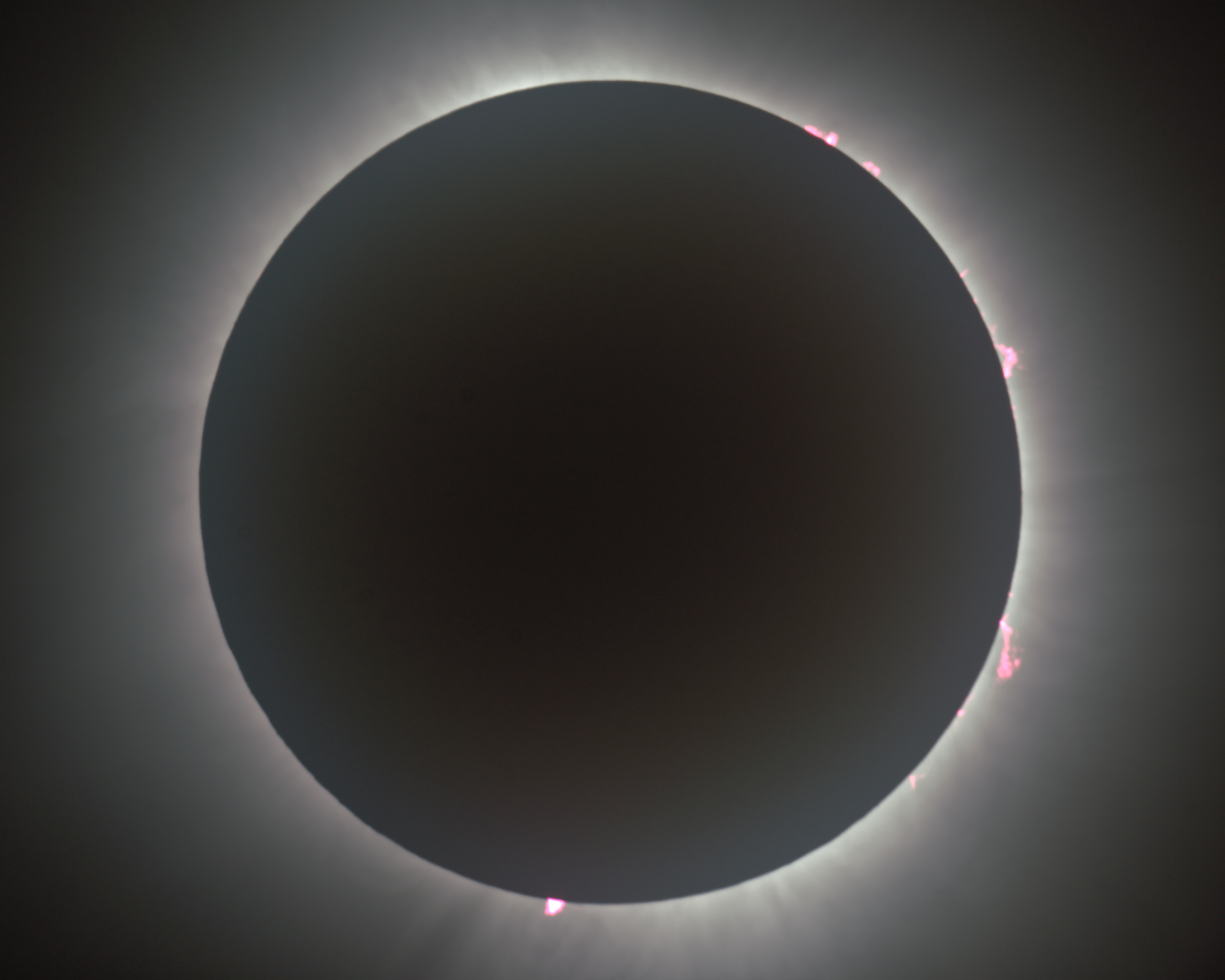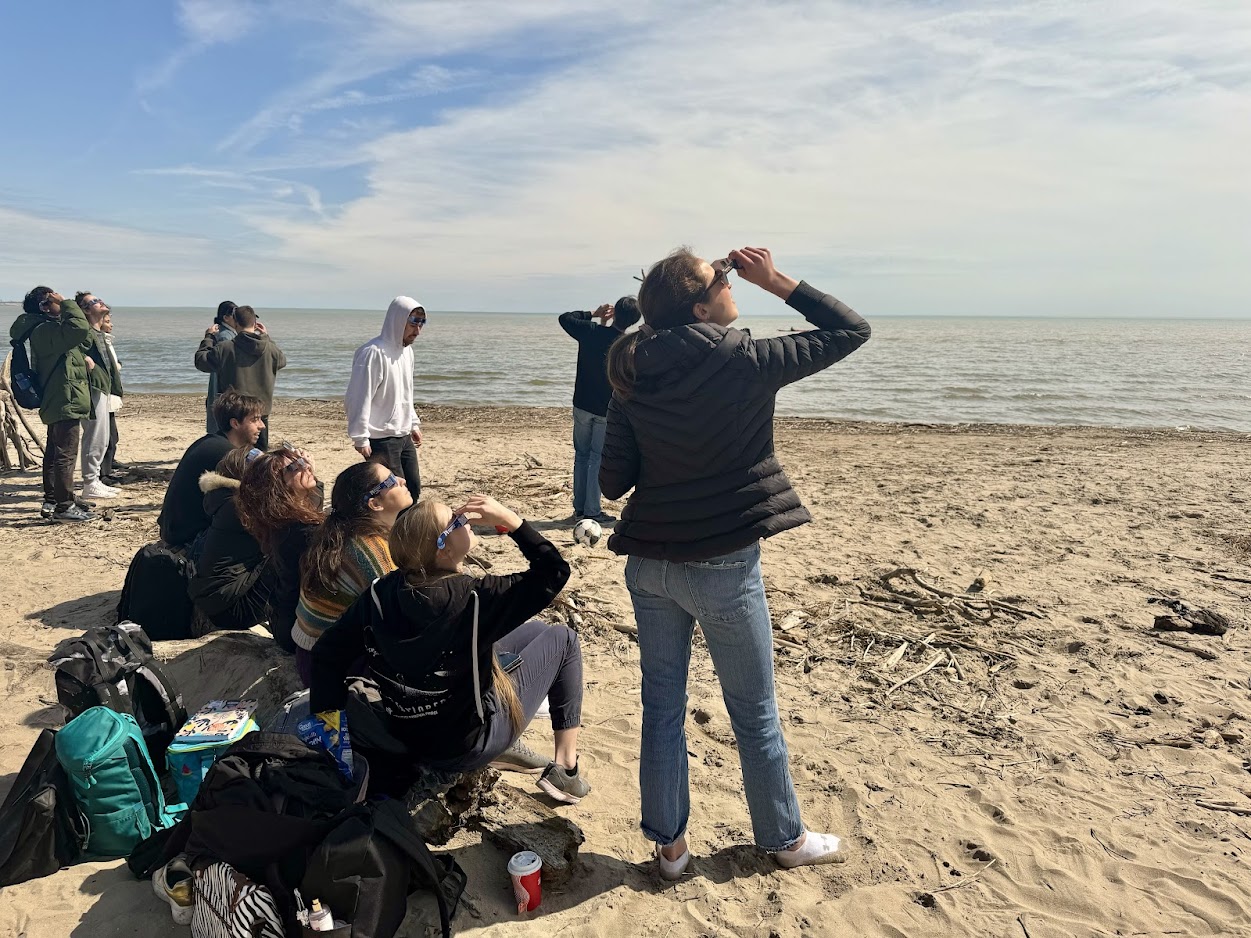Qu'il s'agisse de soirées d’observation improvisés à des séances de clichés vraiment cool, notre équipe a tiré le meilleur parti de l’éclipse solaire de 2024.
Nous sommes ravis de partager une collection de photos amusantes et fascinantes que nos membres ont prises pendant l’éclipse. Pour encore plus de photos étonnantes, n’oubliez pas de consulter notre Instagram!
Observation d’une éclipse partielle à Waterloo
Bien que l’Institut Périmètre ne se trouvait pas sur la trajectoire de l’éclipse totale, l’enthousiasme pour l’éclipse solaire était à son comble. Waterloo a connu une éclipse partielle, avec près de 99 % du disque solaire recouvert par la Lune, transformant le Soleil en croissant alors que le ciel s’assombrissait.
Un voyage pour voir une éclipse solaire totale
Un groupe de l’Institut Périmètre s’est aventuré sur le chemin de l’éclipse totale pour bénéficier d’une vue inégalée de l’éclipse. Ils ont ainsi pu assister au spectacle époustouflant de l’éclipse totale, lorsque la Lune recouvre complètement le Soleil, projetant une ombre qui enveloppe les environs dans le crépuscule.
Nous nous concentrons maintenant sur l’éclipse solaire de 2026, qui sera la première en Europe depuis 27 ans. Si vous ne voulez pas la manquer, envisagez un voyage en Espagne ou en Islande cet été-là!
Avez-vous pris des photos de l’éclipse de 2024? Si c’est le cas, nous serions ravis de les voir. Taguez-nous sur Instagram pour être mis en avant dans notre histoire!
Que dois-je faire de mes lunettes d’éclipse ?
Vous vous demandez comment vous débarrasser de vos lunettes de soleil d’éclipse ?
Le moyen le plus simple est de retirer le film protecteur et de le jeter à la poubelle, puis de mettre les montures en carton dans la poubelle bleue.
Vous pouvez également faire un don à Astronomers Without Borders pour les éclipses à venir dans les zones qui n’y ont pas accès :
https://astronomerswithoutborders.org/programs/solar-glasses-distribution#collection_node
À propos de l’IP
L'Institut Périmètre est le plus grand centre de recherche en physique théorique au monde. Fondé en 1999, cet institut indépendant vise à favoriser les percées dans la compréhension fondamentale de notre univers, des plus infimes particules au cosmos tout entier. Les recherches effectuées à l’Institut Périmètre reposent sur l'idée que la science fondamentale fait progresser le savoir humain et catalyse l'innovation, et que la physique théorique d'aujourd'hui est la technologie de demain. Situé dans la région de Waterloo, cet établissement sans but lucratif met de l'avant un partenariat public-privé unique en son genre avec entre autres les gouvernements de l'Ontario et du Canada. Il facilite la recherche de pointe, forme la prochaine génération de pionniers de la science et communique le pouvoir de la physique grâce à des programmes primés d'éducation et de vulgarisation.






